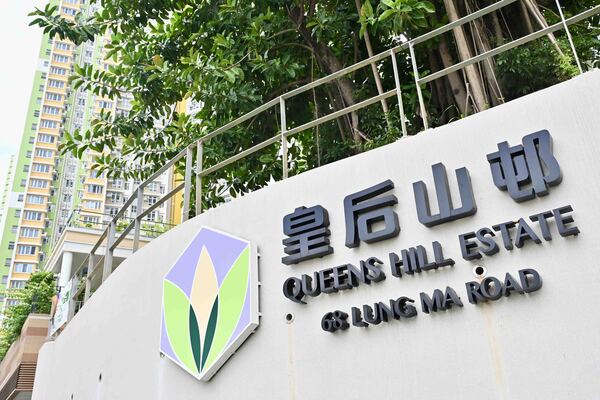
The Water Supplies Department (WSD) will work around the clock to replace a 400-metre-long steel water main by early July, that was believed to be the source of the bitumen sediments found in the fresh water at Queen’s Hill Estate and Shan Lai Court.
Secretary for Development Bernadette Linn told legislators today that the Government is highly concerned about the water incident at Queen’s Hill. Upon receiving the incident reports at the end of May, the WSD and the Housing Department (HD) formed a joint working group to probe the incident and formulate remedial measures.
The WSD has cleaned the water mains under its management and maintenance 11 times, while the HD has cleaned water pipes and water tanks under its purview six times and three times respectively.
The HD has also installed 22 screen filters at the water inlet of each building and the estates.
In addition, the WSD keeps collecting water samples from the estates for testing. So far, all samples have complied with the Hong Kong Drinking Water Standards.
Ms Linn noted that about 700 enquiries have been made to the 24-hour hotline since its set-up on June 7. Furthermore, the WSD has received over 1,500 requests for flushing water meters through community channels.
Such channels involved the street counters and home visits organised by District Council members, the three district committees and the Care Teams.
The WSD has completed the flushing of water meters within one to two days. Currently, most of the residents reported an improvement in water quality and follow-up action is not required.
The WSD believes that the black sediments in the fresh water originated from a steel water main at the upstream water supply network at Ping Che Road. The 400-metre-long water main uses bitumen as an inner lining that serves as a protective coating.
Over the past week, the WSD has explored the approach of using exposed temporary water mains to replace the steel water main.
It collaborated with the Development Bureau, the contractor, the Transport Department, Police and the North District Office to formulate traffic arrangements.
Through collective efforts, the WSD will immediately start the project and work around the clock to complete the temporary water mains by early July, when the specified section of bitumen-lined steel water mains will decommission.
The WSD will also strive to replace the exposed temporary water mains with a permanent underground water mains by the end of this year.
Ms Linn pointed out that the WSD has ceased applying bitumen lining on fresh water mains since 2005. Of the water pipes that still contain this type of lining, only about 230km are fresh water distribution mains, representing about 3.9% of the city’s total fresh water distribution mains.
Apart from installing over 1,000 screen filters in the related water supply network, the WSD is reviewing the necessity of installing additional screen filters at suitable locations, she added.






















